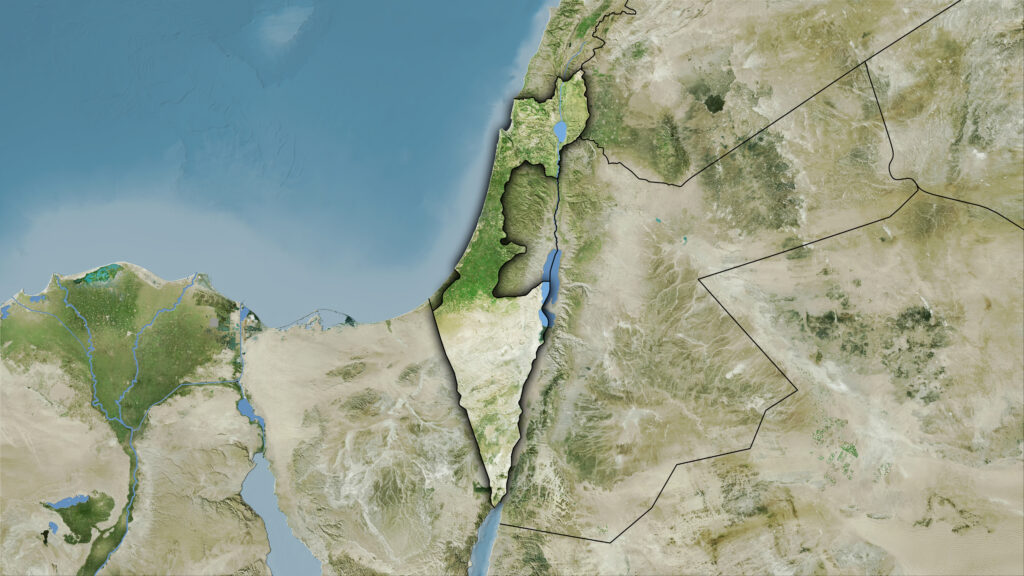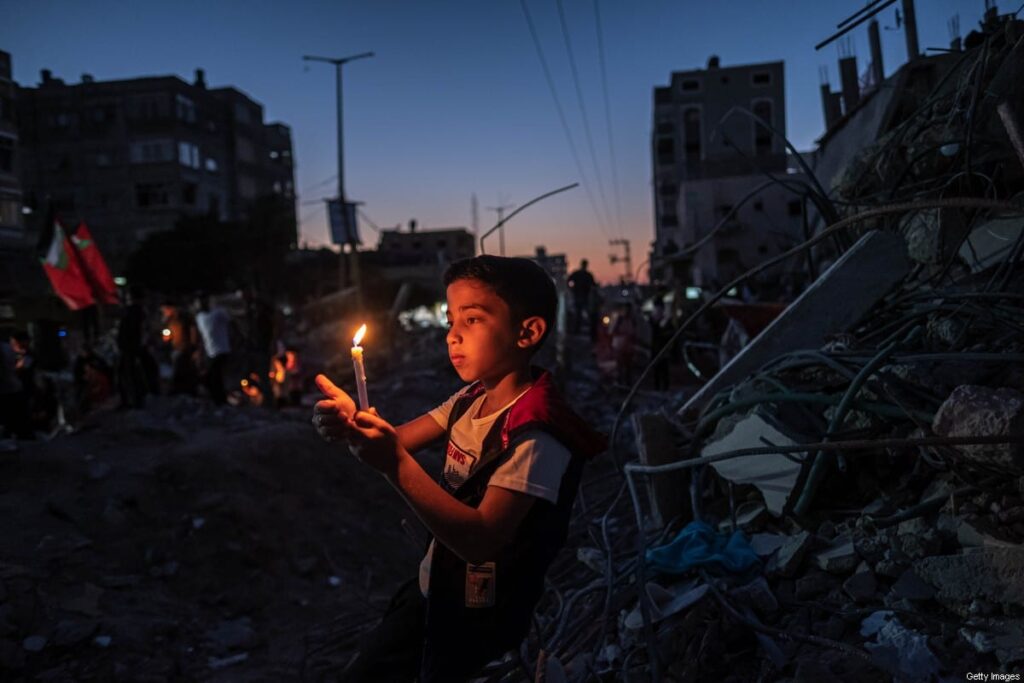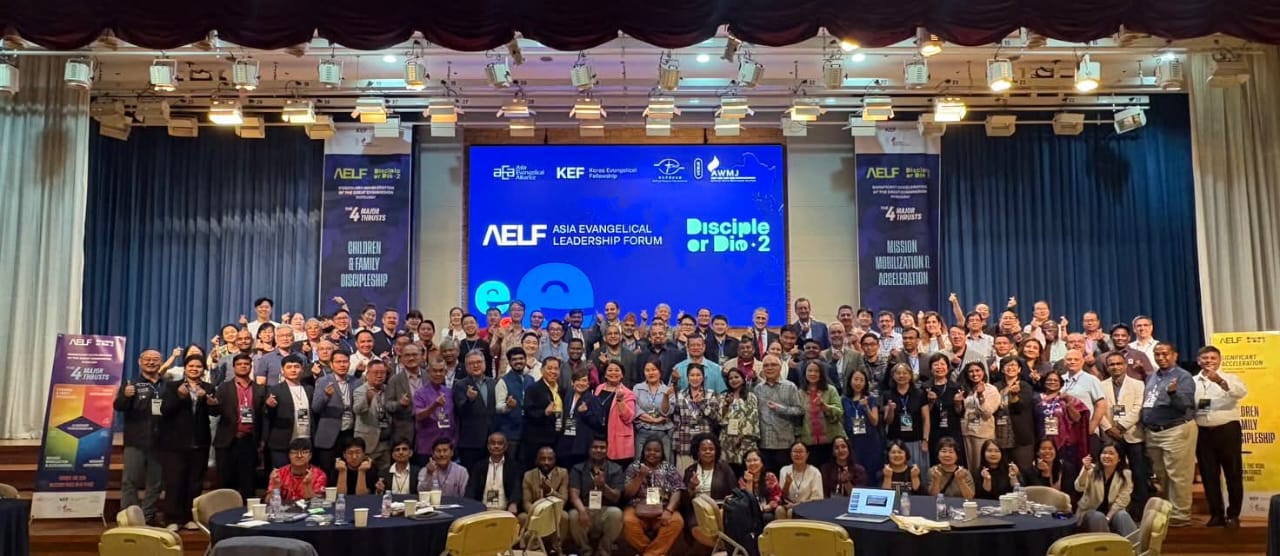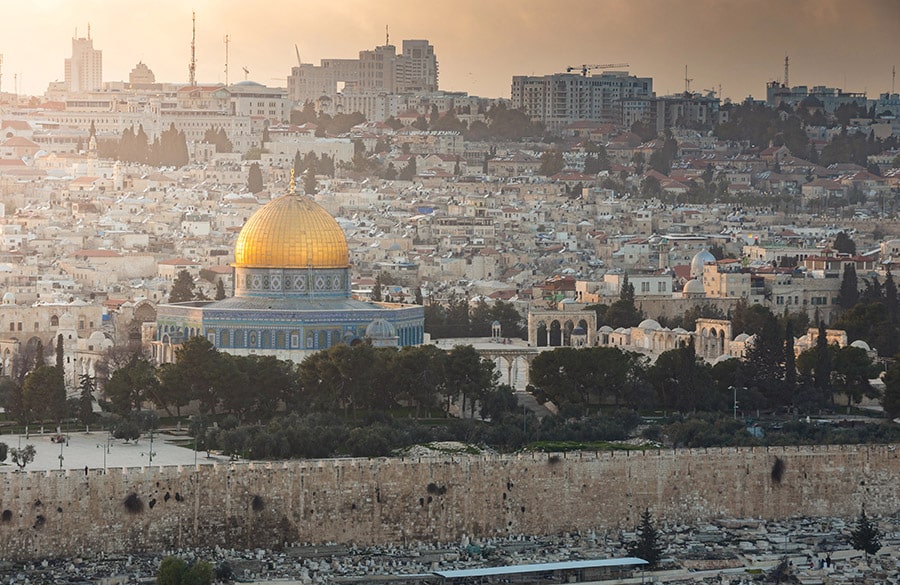The World Evangelical Alliance is coordinating relief work with Christians on both sides of the Israel-Gaza border

The outbreak of war between Israel and Hamas has produced horrible levels of human tragedy, with no end in sight. Many of the world’s 600 million evangelical Christians have wanted to help, but their response has been complicated by divided loyalties, with many Christians on both sides of the war-ravaged border and intensely held political views on each side.
Amidst this unfolding disaster, the world’s largest evangelical Christian organization has come forward with a balanced, strategic solution that incorporates prayer and action and reflects Christ’s love for all people: send aid to the needy in both Gaza and southern Israel, through their excellent on-the-ground connections in both locations.
The World Evangelical Alliance is best known for unifying the global evangelical community and giving it a voice at the United Nations, on religious freedom issues, and in relations with other major religious bodies. But it also has an impressive track record of aiding war-torn areas effectively. After Russia invaded Ukraine, the WEA raised funds globally and channeled them through local contacts in Ukraine and neighboring nations to which Ukrainians were fleeing. It also gained rare permission to provide humanitarian assistance in Russian-occupied Crimea.
Now the WEA is drawing on its strong global networks and its emergency relief capacities to deliver humanitarian aid through trusted local partners to those who most need it in Gaza and Israel.
Sustaining the faithful in Gaza
On the Gaza side of the conflict, the WEA is partnering with the Middle East and North Africa (MENA) regional evangelical alliance, which has extensive connections with local relief activities. The main goal is to restore the Baptist Hospital, which was badly damaged by an explosion on October 17, resulting in hundreds of deaths.
The MENA alliance will leverage the on-site relief capacities of the Bethlehem-based Shepherd Society, which has been assisting Palestinians in Gaza since 2007.
“This collaborative approach ensures that aid and support reach the affected communities efficiently and effectively,” said Dirk Gerlach, director of the WEA’s Crisis Response Coordination Center, who developed the plan.
The project aims to rehabilitate the x-ray facility, emergency room, and patient rooms at the Baptist Hospital, as well as replenishing medicines and medical supplies. Gerlach said the WEA and its partners also intend to provide food boxes for 3,000 families. They will also supply spiritual and psychological support through group, individual, and online counseling.
Another key to the WEA’s effectiveness is its political neutrality, which enables it to maintain harmonious relationships with both Israeli and Palestinian governments.
“In our crisis response, we work through local church structures and mobilize local church members,” Gerlach explained. “We can therefore respond immediately and have no problems of access to the victims, unlike foreign aid organizations that are at greater risk of being blocked due to perceived political motives.
“This is a great chance for us to show the love of Christ to victims of crisis in a very practical way and at an early stage, thus strengthening the church by showing that we care.”
With Israeli blockades tightly restricting freedom of movement, even for humanitarian aid, the WEA’s reputation and good relationships will be crucial in ensuring that the Baptist Hospital can resume its desperately needed operations.
The WEA is also partnering with the Evangelical Church of Egypt’s Synod of the Nile to assist refugees at the Rafah border crossing from Gaza into Egypt.
Reaching the vulnerable in Israel
Meanwhile, residents of southern Israel are living in similar fear and uncertainty due to Hamas attacks on their cities. To reach this area, the WEA is collaborating with its Israel national alliance to assist displaced people. It is also raising funds for House of Hope, a German charity and WEA partner that is well connected to both churches and local governments in Israel, to set up temporary disaster relief centers.
Martin Dieckmann, House of Hope’s CEO, explained, “We want to eliminate the big gap between the global Christian network, with all its resources, and the messianic believers in Israel who are doing ministry at a grassroots level, often working multiple jobs to survive.”
House of Hope plans to establish community centers in two historic cities heavily exposed to rocket fire from Gaza: Ashkelon (just 8 miles from the border) and Ashdod, Israel’s fourth-largest city, another 10 miles north.
Dieckmann said that more than 40,000 people in Ashkelon (one-quarter of the total city population) have no shelter due to the hundreds of missile attacks and destroyed buildings, and he estimated that 16,000 people are relying on daily food donations to survive.
Dieckmann indicated that Ashdod has several messianic Jewish congregations with members from various ethnic backgrounds, and that one leader of a relatively large congregation is helping to establish the disaster relief center there.
The relief centers are designed to coordinate Christian organizations’ responses to the crisis, providing food, emergency supplies, children’s activities, trauma therapy, and spiritual support.
A call to united prayer
Christians know that action is worthless if not preceded and guided by prayer. As Jesus said, “Apart from me, you can do nothing” (John 15:5). But in the Israel-Hamas war, even calls for prayer are fraught with controversy. Prayers for peace are seen by some as denying Israel’s right to self-defense; prayers against terrorism are seen as denying the claims of Palestinians.
The WEA has gone to great lengths to maintain unity and respect among Christians, listening carefully to its leaders in both Israel and Palestine. It has published a spiritually deep call to prayer that all believers, whatever their political perspectives, should be able to endorse. We encourage you to read it, pray it yourself, and share it with others.

How you can help
By relying on established contacts with respected Christians in Israel, Gaza, and Egypt, the WEA can deliver aid quickly to where it is most needed with low administrative overhead.
We hope you will support this initiative. You can easily make a donation online to support the WEA’s efforts to rebuild lives and share Christ’s love with the victims of war in Israel and Gaza.
Nearly 2,000 years ago, in his letter to the Ephesians, the apostle Paul praised God for bringing Jews and Gentiles in the body of Christ. Today, through its humanitarian outreach to Israelis and Palestinians, the WEA is demonstrating to the world that despite the ongoing political strife, Christians are united as one church, dedicated to making Jesus’ love known everywhere.




Stay Connected